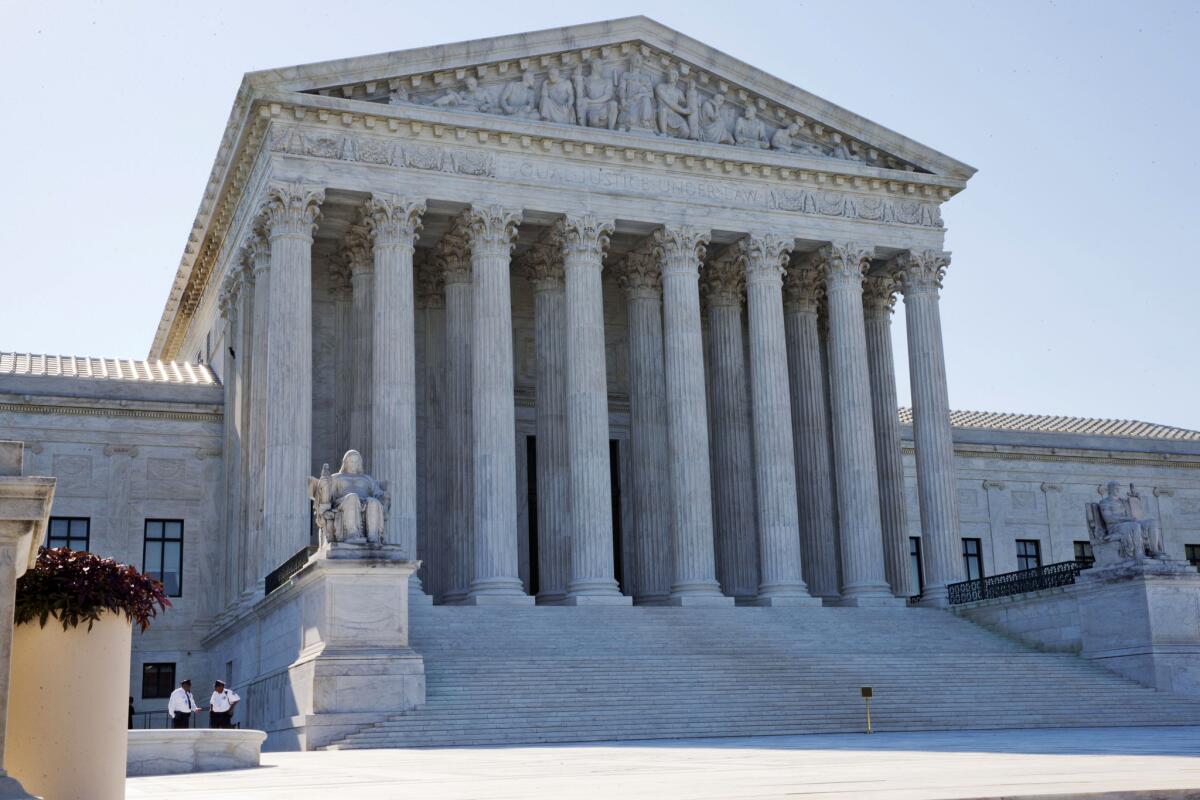Congress might have to actually cough up for everything it promises to pay for. Imagine that

- Share via
Republicans have never had the votes to repeal the Affordable Care Act, and their futile efforts to “defund Obamacare” in 2013 — which they also did not have the votes to do — led to a pointless government shutdown. (I would have described the shutdown as “lengthy,” but President Trump has set a new standard for that word when it comes to pointless government shutdowns.)
All they did manage to do was deny funding for a couple of pieces of the act, making stooges out of U.S. health insurers in the process. But the insurers may have the last laugh; at oral arguments before the Supreme Court on Tuesday, most of the justices pushed back against the idea that Congress could pass a law requiring the federal government to reimburse insurers for certain expenses, then fail to provide the money to do so.
This is a broad and powerful principle that could wreak havoc on one of lawmakers’ favorite shortcuts: “riders” on appropriations bills that seek to change previously enacted law simply by defunding it (or, conceivably, overfunding it).
Riders are a popular tool because the annual appropriations measures are must-pass bills, which means there’s a lot of dealmaking and compromising inherent in the process. The Hyde Amendment that bars federal funding for abortions except for pregnancies that stem from rape or incest or endanger the life of the mother is probably the best known example.
The case before the court Tuesday revolved around the ACA’s “risk corridors” provision, which was designed to help insurers in the newly created state Obamacare exchanges adjust to a new set of customers and risks (remember, the ACA barred insurers from turning away any applicants or charging sick people more than healthy customers). Insurers that paid out more for medical claims than anticipated would draw money out of the risk-corridor program to cover their higher costs, and those that paid out less would pay into the program.
These payments were supposed to balance out, costing the taxpayer nothing. But as it happened, the system wasn’t balanced at all. Collectively, insurers paid out far more in excess claims than they received in excess premiums, putting the Treasury on the hook for billions of dollars in risk-corridor payouts.
Enter Sen. Marco Rubio (R-Fla.), who decided that insurers were seeking a “bailout” from federal taxpayers. He persuaded Congress to bar funding for the risk corridor program in 2015 and subsequent years, leading health insurers to sue the federal government for $12 billion in unpaid claims. Those lawsuits eventually made their way to the Supreme Court, where justices seemed taken aback by the idea that Congress could ignore a statutory mandate like the one behind the risk corridors — or more precisely, that Congress could ignore just the part of the mandate that required insurers who paid too much in claims to be fully reimbursed. Insurers who paid too little in claims were still required to make their full contributions to the program.
As my colleague David Savage reported, “Justices Stephen G. Breyer, Elena Kagan and Chief Justice John G. Roberts Jr. all said it would be strange to rule Congress could promise private companies it ‘shall pay’ them to undertake a certain task while reserving the right to not pay once the task was complete.”
This is, in other words, congressional bad faith. And the justices appear poised to rule that it’s unlawful. It may even declare, as a general principle, that once Congress passes a law obligating the federal government to pay some entity for fulfilling a federal mandate, it should either live up to that commitment or repeal the law.
Congress and the Trump administration pulled the same stunt in regards to the ACA’s requirement that insurers provide very low-income households policies with little or no out-of-pocket cost. The law mandates that the federal government reimburse insurers for those expenses, but Republican lawmakers balked, and when the Obama administration paid the reimbursements anyway, the GOP-controlled House sued to block the payments. When Trump took office, he canceled the reimbursements.
In that case, though, insurers worked with state officials to find another way to fund the out-of-pocket discounts: by charging higher premiums, primarily for customers who qualified for federal subsidies that would cover the increase in costs. So taxpayers ended up paying for the out-of-pocket discounts anyway. The Trump administration has floated the idea of ending that workaround, but its experience in court Tuesday should persuade it otherwise.
More to Read
A cure for the common opinion
Get thought-provoking perspectives with our weekly newsletter.
You may occasionally receive promotional content from the Los Angeles Times.










